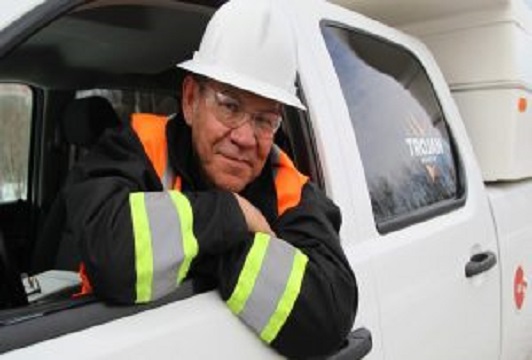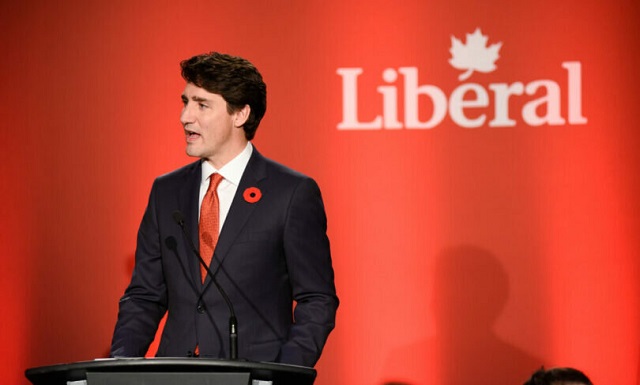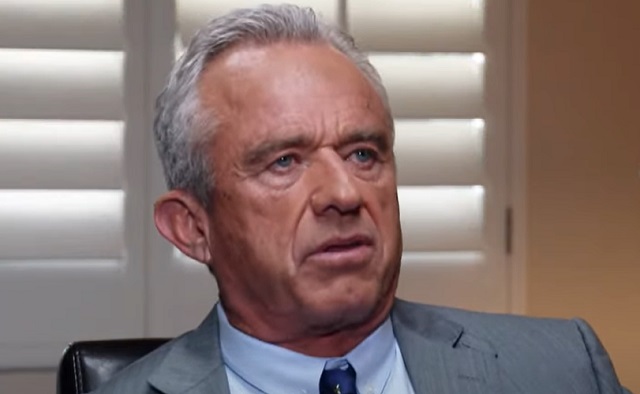Economy
Indigenous Loan Program Could Pave the Way for More Natural Resource Economy Ownership

From EnergyNow.ca
“We want to be part of the oil and gas industry”
Ottawa has promised a loan program for Indigenous communities to buy equity stakes in natural resource projects, but many questions are still unanswered.
Ottawa is currently under scrutiny as it prepares to incorporate an Indigenous loan-guarantee program into its 2024-2025 budget, aimed at assisting Indigenous communities in acquiring equity stakes in natural resource projects. This commitment was made in Finance Minister Chrystia Freeland’s fall economic statement on November 21.
The government will advance development of an Indigenous Loan Guarantee Program to help facilitate Indigenous equity ownership in major projects in the natural resource sector. Next steps will be announced in Budget 2024.
The federal budget is typically presented to Parliament in either February or March, with the 2023-2024 budget having been announced on March 28 last year. While Ottawa has engaged in consultations with Indigenous leaders and organizations, there remains a notable lack of specific details, including a critical issue – whether the program will permit investment in oil and gas projects.
The First Nations Major Projects Coalition, boasting over 145 members, strongly advocates for Indigenous peoples to have the autonomy to determine their investment choices without constraints imposed by Ottawa. Although the government did assert its commitment to ensuring Indigenous communities benefit from major projects within their territories on their own terms, First Nations groups worry that the loan-guarantee program might mirror the green restrictions of the current Indigenous loan program provided by the Canada Infrastructure Bank.
This existing program allows equity stakes only in infrastructure projects aligned with the bank’s investments, such as clean power, green infrastructure, broadband technology, and transportation. For some time, the First Nations Major Projects Coalition (FNMPC) and the Indigenous Resource Network have been at the forefront of campaigns urging federal loan guarantees to facilitate Indigenous participation in natural resource projects.
Sharleen Gale, Chair of FNMPC, argues that fossil fuel investments must be a component of any federal loan-guarantee program, as equity in the oil and gas industry can empower First Nations to thrive in alignment with their values.
“We want to be part of the oil and gas industry,” says Gale.
In 2022, the Indigenous Resource Network (IRN) initiated the “Ownership Changes Everything” campaign, advocating for Indigenous ownership in resource projects. This campaign calls upon Ottawa to implement a loan program modeled after similar initiatives in Alberta, Saskatchewan, and Ontario. Robert Merasty, highlights the challenges faced by Indigenous communities due to the Indian Act, which prohibits First Nations from using their land and assets as collateral. Consequently, they lack the necessary at-risk capital to secure favorable interest rates.
“The problems our communities are facing is that there are few mechanisms to access the necessary capital for investing in projects and having equity,” says Merasty.
In 2023, FNMPC penned an open letter to Finance Minister Chrystia Freeland, emphasizing the significance of advancing major resource projects for a successful energy transition and economic growth benefiting all Canadians. They also pointed out that the Indian Act remains a significant hurdle, preventing First Nations from leveraging their assets and land for borrowing.
FNMPC estimates that over the next decade, 470 major projects impacting Indigenous lands will require more than $525 billion in capital investment, with approximately $50 billion needed for Indigenous equity financing. An illustrative case from Alberta involved energy giant Enbridge, which partnered with 23 First Nation and Métis communities to sell an 11.57% interest in seven pipelines in northern Alberta. This partnership was made possible through a loan guarantee from the Alberta Indigenous Opportunities Corp., which provides financing to Indigenous communities seeking commercial collaborations, alongside various other financial supports.
Greg Ebel, CEO of Enbridge, has joined the campaign for a national program.
“Investment in the entire energy sector and many others could be accelerated by the immediate implementation of a federal Indigenous loan-guarantee program to ensure Canada’s Indigenous Peoples have a seat at the table while also having equity that helps them secure a more prosperous future,” says Ebel.
As we await further developments, the question remains: Will a federal loan-guarantee program come to fruition, one that encompasses loan guarantees for investments in natural gas and oil? We are hopeful for a positive outcome.
Business
Taxpayers criticize Trudeau and Ford for Honda deal

From the Canadian Taxpayers Federation
Author: Jay Goldberg
The Canadian Taxpayers Federation is criticizing the Trudeau and Ford governments to for giving $5 billion to the Honda Motor Company.
“The Trudeau and Ford governments are giving billions to yet another multinational corporation and leaving middle-class Canadians to pay for it,” said Jay Goldberg, CTF Ontario Director. “Prime Minister Justin Trudeau is sending small businesses bigger a bill with his capital gains tax hike and now he’s handing out billions more in corporate welfare to a huge multinational.
“This announcement is fundamentally unfair to taxpayers.”
The Trudeau government is giving Honda $2.5 billion. The Ford government announced an additional $2.5 billion subsidies for Honda.
The federal and provincial governments claim this new deal will create 1,000 new jobs, according to media reports. Even if that’s true, the handout will cost taxpayers $5 million per job. And according to Globe and Mail investigation, the government doesn’t even have a proper process in place to track whether promised jobs are actually created.
The Parliamentary Budget Officer has also called into question the government’s claims when it made similar multi-billion-dollar handouts to other multinational corporations.
“The break-even timeline for the $28.2 billion in production subsidies announced for Stellantis-LGES and Volkswagen is estimated to be 20 years, significantly longer than the government’s estimate of a payback within five years for Volkswagen,” wrote the Parliamentary Budget Officer said.
“If politicians want to grow the economy, they should cut taxes and red tape and cancel the corporate welfare,” said Franco Terrazzano, CTF Federal Director. “Just days ago, Trudeau said he wants the rich to pay more, so he should make rich multinational corporations pay for their own factories.”
Business
Maxime Bernier warns Canadians of Trudeau’s plan to implement WEF global tax regime

From LifeSiteNews
If ‘the idea of a global corporate tax becomes normalized, we may eventually see other agreements to impose other taxes, on carbon, airfare, or who knows what.’
People’s Party of Canada leader Maxime Bernier has warned that the Liberal government’s push for World Economic Forum (WEF) “Global Tax” scheme should concern Canadians.
According to Canada’s 2024 Budget, Prime Minister Justin Trudeau is working to pass the WEF’s Global Minimum Tax Act which will mandate that multinational companies pay a minimum tax rate of 15 percent.
“Canadians should be very concerned, for several reasons,” People’s Party leader Maxime Bernier told LifeSiteNews, in response to the proposal.
“First, the WEF is a globalist institution that actively campaigns for the establishment of a world government and for the adoption of socialist, authoritarian, and reactionary anti-growth policies across the world,” he explained. “Any proposal they make is very likely not in the interest of Canadians.”
“Second, this minimum tax on multinationals is a way to insidiously build support for a global harmonized tax regime that will lower tax competition between countries, and therefore ensure that taxes can stay higher everywhere,” he continued.
“Canada reaffirms its commitment to Pillar One and will continue to work diligently to finalize a multilateral treaty and bring the new system into effect as soon as a critical mass of countries is willing,” the budget stated.
“However, in view of consecutive delays internationally in implementing the multilateral treaty, Canada cannot continue to wait before taking action,” it continued.
The Trudeau government also announced it would be implementing “Pillar Two,” which aims to establish a global minimum corporate tax rate.
“Pillar Two of the plan is a global minimum tax regime to ensure that large multinational corporations are subject to a minimum effective tax rate of 15 per cent on their profits wherever they do business,” the Liberals explained.
“The federal government is moving ahead with legislation to implement the regime in Canada, following consultations last summer on draft legislative proposals for the new Global Minimum Tax Act,” it continued.
According to the budget, Trudeau promised to introduce the new legislation in Parliament soon.
The global tax was first proposed by Secretary-General of Amnesty International at the WEF meeting in Davos this January.
“Let’s start taxing carbon…[but] not just carbon tax,” the head of Amnesty International, Agnes Callamard, said during a panel discussion.
According to the WEF, the tax, proposed by the Organization for Economic Co-operation and Development (OECD), “imposes a minimum effective rate of 15% on corporate profits.”
Following the meeting, 140 countries, including Canada, pledged to impose the tax.
While a tax on large corporations does not necessarily sound unethical, implementing a global tax appears to be just the first step in the WEF’s globalization plan by undermining the sovereignty of nations.
While Bernier explained that multinationals should pay taxes, he argued it is the role of each country to determine what those taxes are.
“The logic of pressuring countries with low taxes to raise them is that it lessens fiscal competition and makes it then less costly and easier for countries with higher taxes to keep them high,” he said.
Bernier pointed out that competition is good since it “forces everyone to get better and more efficient.”
“In the end, we all end up paying for taxes, even those paid by multinationals, as it causes them to raise prices and transfer the cost of taxes to consumers,” he warned.
Bernier further explained that the new tax could be a first step “toward the implementation of global taxes by the United Nations or some of its agencies, with the cooperation of globalist governments like Trudeau’s willing to cede our sovereignty to these international organizations.”
“Just like ‘temporary taxes’ (like the income tax adopted during WWI) tend to become permanent, ‘minimum taxes’ tend to be raised,” he warned. “And if the idea of a global corporate tax becomes normalized, we may eventually see other agreements to impose other taxes, on carbon, airfare, or who knows what.”
Trudeau’s involvement in the WEF’s plan should not be surprising considering his current environmental goals – which are in lockstep with the United Nations’ 2030 Agenda for Sustainable Development – which include the phasing out coal-fired power plants, reducing fertilizer usage, and curbing natural gas use over the coming decades.
The reduction and eventual elimination of so-called “fossil fuels” and a transition to unreliable “green” energy has also been pushed by the World Economic Forum – the aforementioned group famous for its socialist “Great Reset” agenda – in which Trudeau and some of his cabinet are involved.
-

 COVID-192 days ago
COVID-192 days agoPfizer reportedly withheld presence of cancer-linked DNA in COVID jabs from FDA, Health Canada
-

 COVID-191 day ago
COVID-191 day agoTrudeau gov’t has paid out over $500k to employees denied COVID vaccine mandate exemptions
-

 Automotive6 hours ago
Automotive6 hours agoThe EV ‘Bloodbath’ Arrives Early
-

 National2 days ago
National2 days agoAnger towards Trudeau government reaches new high among Canadians: poll
-

 Addictions1 day ago
Addictions1 day agoWhy can’t we just say no?
-

 International1 day ago
International1 day agoRFK Jr tells EWTN: Politicization of the CIA, FBI, Secret Service under Biden is ‘very troubling’
-

 Brownstone Institute2 days ago
Brownstone Institute2 days agoThe Teams Are Set for World War III
-

 Opinion2 days ago
Opinion2 days agoThe Climate-Alarmist Movement Has A Big PR Problem On Its Hands







